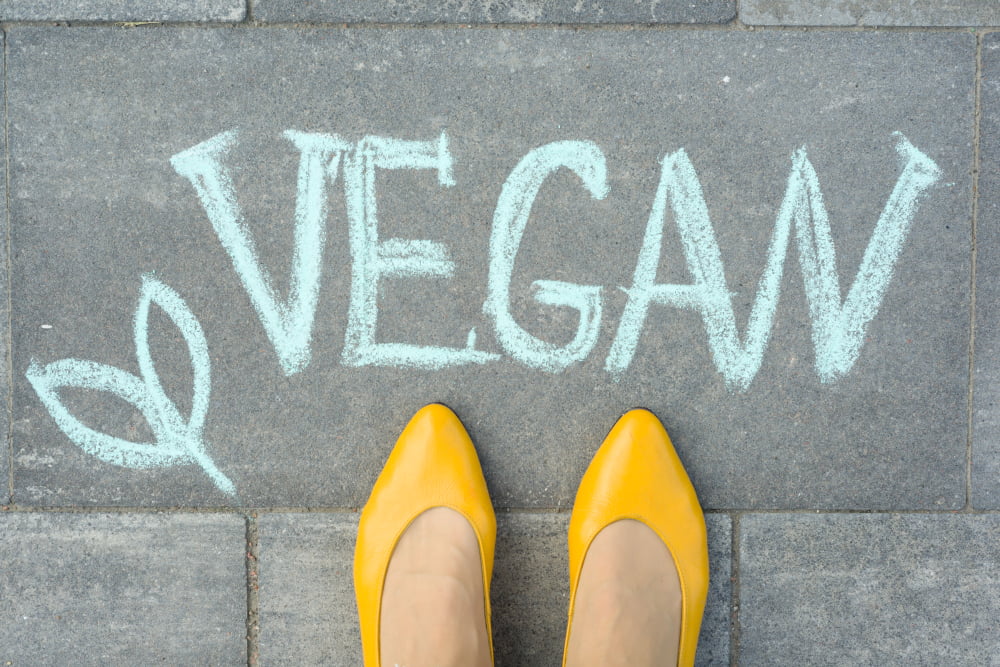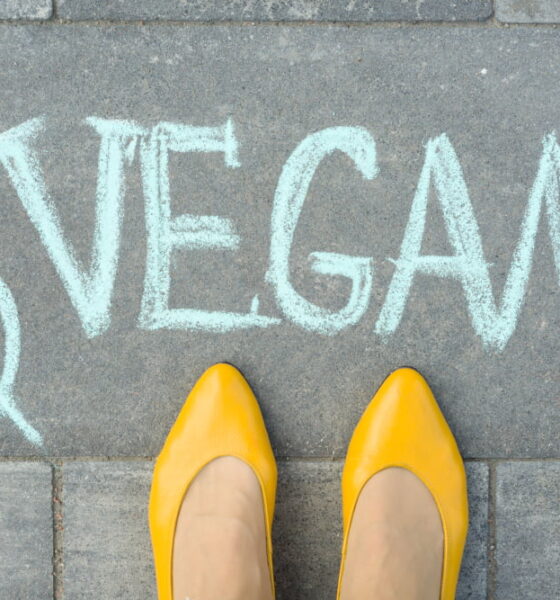

Go Green
Are Vegan Shoes A Sustainable Option?
With the increased interest in environmentally friendly items on a daily basis, it is time to investigate what makes certain shoes more environmentally friendly than others. Over the years, much of the attention has been focused on fast fashion and the damage that it causes to the environment. Vegan shoes are footwear that is created without the use of any animal materials or byproducts. However, while such shoes are marketed as cruelty-free, are they actually any better for the environment than conventional footwear?
Shoes may be created from a number of materials that are derived from animals, including leather, silk, fur, and wool, to name a few examples. The majority of debates around ethical footwear, on the other hand, frequently center on leather.
What Is So Bad in Leather for The Environment?
The environmental rationale for vegan leather is analogous to the environmental case for vegetarianism in terms of sustainability. Raising animals for their skin necessitates the removal of trees to make room for pastures, as well as energy-intensive feeding and the usage of antibiotics, which end up in the food supply.
The chemical treatment of animal hides, often known as tanning, is required to keep them from degrading. Chemicals such as hydrogen sulfide, ammonia, and chromium are often employed, and they have the potential to leak into soil and water at amounts that are carcinogenic to humans.
The Science Direct ranks leather tanneries as one of the world’s top ten toxic-pollution concerns, and the Environmental Protection Agency has classified numerous old tanneries as Superfund sites. Environmental organizations and the United Nations have expressed concern about the tanning business in other nations, particularly in developing countries.
What Is the Definition of Vegan Shoes?
Vegan shoes are those in which no animals were injured throughout the manufacturing process. There were no animal byproducts utilized. Furthermore, it does not include any goods that have been tested on animals. As a result, many of the materials that are traditionally utilized in shoemaking are not included. For instance, leather, glues, fur, wool, and so on.
To be sure, the selection of sustainable shoes has expanded and continued to expand over the course of several years. Vegan shoes are not only made of synthetic leather but also of real leather. In truth, material technology has progressed significantly, and completely vegan shoes are now widely available, particularly in active lifestyle footwear.
Are Vegan Shoes Environmentally Friendly?
Many vegan consumers place a high value on ensuring that their purchases do not include any animal products, mostly for ethical reasons.
Synthetic leathers, on the other hand, are frequently petroleum-based, and their creation necessitates the use of harmful chemicals. The petroleum-based material PVC or polyvinyl chloride, sometimes known as “poison plastic,” is a popular leather substitute in the industry and has been dubbed “the poison plastic.” PU, a synthetic plastic polymer, is another option. It is softer, more malleable, and less poisonous than PVC, making it a good alternative to PVC.
Even worse, some imitation leathers are composed of polyvinyl chloride (PVC), which includes phthalates, which are chemical additives that have been linked to a number of health concerns. A number of vegan leathers are made from cork or kelp, while many commercial leather replacements are made from a combination of cotton and polyurethane. Despite the fact that polyurethane is far from environmentally benign, it is less harmful than PVC.
However, the topic of whether material is the most environmentally friendly footwear is more nuanced than the question of whether natural or synthetic materials are utilized. Vegan leathers created from natural materials are extremely rare and difficult to come by. It is possible to discover environmentally friendly items produced from materials such as cork, pineapple leaves, or kelp, but they are more difficult to come by.
Some firms have devised closed-loop recycling procedures that allow consumers to return worn-out shoes, despite the fact that many of the synthetic materials used to produce vegan shoes are sourced from petroleum products. Parts of the shoes are then used to make entirely new pairs of shoes.
What Makes a Shoe Sustainable?
The method of making leather is hazardous to the animals, the environment, and the people who work in the leather production industry. Those who benefit on the anguish and misery of others are the primary benefactors of this system. However, the good news is that there are a broad variety of sustainable vegan leather options available today that have qualities comparable to leather while causing no harm to the environment or animals. Vegan leather is becoming increasingly popular.
We all know what makes footwear vegan, but do we know what makes a shoe environmentally friendly? Sustainable shoes are produced from materials that are generally comprised of natural fibers derived from sources such as mushrooms, hemp, and pineapple, as well as upcycled and repurposed materials, all of which help to lessen their environmental impact.
How Can You Tell if a Pair of Vegan Shoes Is Genuine?
It might be difficult to distinguish between animal-friendly vegan shoes and non-vegan sneakers. This is especially true given the huge number of non-vegan shoes available. Having said that, the issue remains as to how one can tell whether a business is using real leather or synthetic leather when creating their shoes.
The majority of shoe brands and manufacturers provide labels on their shoes that provide information on the materials that were used to make the shoes. As a result, before you purchase the shoes, make sure the tags are in good condition. You’ll be able to chip away at any shoes made of animal skins, feathers, fur, leather, or wool in this manner, too. Because vegan shoes are made of man-made synthetic fibers and fabrics, go for shoes made of PU, PVC, cotton, rubber, or cork rather than leather or suede.
Certain companies additionally use symbols to identify the materials used in the shoes, such as leather, textile, coated leather, and other materials. Coated leather and textile, for example, follow the veganism rule and include the symbols of textile and diamond, respectively, into their designs.
Aside from that, you must pay close attention to the soles and inner linings of the shoes you purchase. As an illustration, certain shoes could have a fake leather front but a wool-lined slipper within, for example. As the popularity of vegan-friendly products continues to grow, even high-end firms are turning to more ecologically friendly options to meet consumer demand. They’ve substituted PU plastics for shearling, resin for snakeskin, fur for false fur, and suede for faux suede in place of the real thing.
Conclusion
Many individuals are just unaware of a large number of vegan shoe options available on the market today. Sure, you may consider yourself fortunate if you were able to track down even a single pair of such shoes in the past, but we’ve gone a long way since then. We now have a plethora of fashionable and stylish vegan-friendly shoes to choose from, which are available in a variety of patterns and styles to suit any occasion. Running shoes, sneakers, boots, clogs, high tops, and other types of footwear are available. You may acquire them in a variety of colors, shapes, sizes, and designs to suit your needs. Take solace in the knowledge that there is a diverse market available for your products. Your purchase will also assist in the support of environmentally friendly enterprises, which in turn will aid in the preservation of our planet’s health!






























